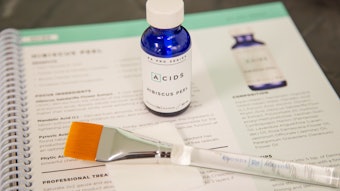“Efforts like these help our industry maintain its strong record of quality, safety, and efficacy, which consumers have come to expect. Our industry is made up of people who want to help other people get and stay healthy, and product integrity and truth in advertising are two important ways to help achieve that goal,” said Tracy Taylor, executive director of the Natural Products Foundation.
Finished-Product Testing Program
Under this program, roughly 15 of the most popular consumer products -- including vitamins and minerals, nutrition bars and sports beverages –- will be randomly purchased from retail stores each month.
The products will be then sent to independent labs for testing, according to the label claim and using the most scientifically relevant standards. Test results will be peer-reviewed by industry scientific experts. All results will be published on the foundation web site.
The program is completely transparent. Results of the first product tests will be published in the fall of 2007. “What’s on the label is what should be in the product, nothing more, nothing less. This program will not only boost consumer confidence, it will help discourage bad actors from cutting corners since the results will be made public,” said Taylor. Taylor also emphasized that the program’s transparency allows for experts to confer on methods and standards while making comprehensive information available to consumers. Although the program is just being launched, it already has three sponsors: Bergstrom Nutrition, NOW Foods and Vitamin Shoppe.
Truth in Advertising Program
This program seeks to enforce truth in advertising on three tracks: education about existing laws and regulations, a new industry pledge, and a hotline where anybody can report questionable claims.
First is learning and developing a working knowledge of existing laws and regulations, which are complex and can be confusing and unclear. Foundation officials will work with manufacturers, retailers, advertisers, publishers or others involved with the use, distribution or sale of natural products to educate them on the details of advertising requirements.
Second is a new industry pledge (text below), which manufacturers, retailers, advertisers or others involved with the use, distribution or sale of natural products will review and sign.
Dietary Supplement Truth-in-Advertising Pledge
We pledge to ensure that consumers get accurate information about legally marketed dietary supplements so that they can make informed decisions in promoting and maintaining their health. In that regard we pledge that any advertisement or marketing materials that we create, publish, or otherwise provide or disseminate will, to the best of our knowledge, be truthful, not misleading and substantiated under the requirements of both the Federal Food Drug and Cosmetic Act (FDCA) as amended by Dietary Supplement Health and Education Act (DSHEA) and the Federal Trade Commission Act :
• Not making claims, either expressly or implied, that are not accurate and fail to adequately disclose qualifying information
• Verifying that there is adequate substantiation for claims being made, including the level of support, type and quality of evidence presented, and relevance of the evidence to the claim
• Not making claims through testimonials or expert endorsements that cannot be substantiated
• Ensuring that claims based on traditional use have the appropriate substantiation or clearly communicate that the sole basis for the claim is its history of use for a particular purpose
• Ensuring that claims are appropriate for dietary supplements and do not cause the product advertised to be a “drug” under the FDCA.
• Using the two-part disclaimer as stipulated by the Dietary Supplement Health and Education Act (DSHEA) of 1994 when appropriate
• Strictly adhering to the use of “third party literature” as defined by DSHEA
Finally, Natural Products Foundation will establish a reporting web page where consumers, competitors, retailers or any member of the public can report any advertising claim they believe to be fraudulent, misleading, or untruthful. Foundation officials will review complaints and take appropriate and necessary action. Action can include anything from contacting the entity responsible for the questionable claim, to referral to the Federal Trade Commission for investigation.
“False advertising by just one bad actor can damage the industry’s good image and reputation, which is not fair. We want to make sure everyone plays by the rules, and this new program will help to do that,” said Taylor.










